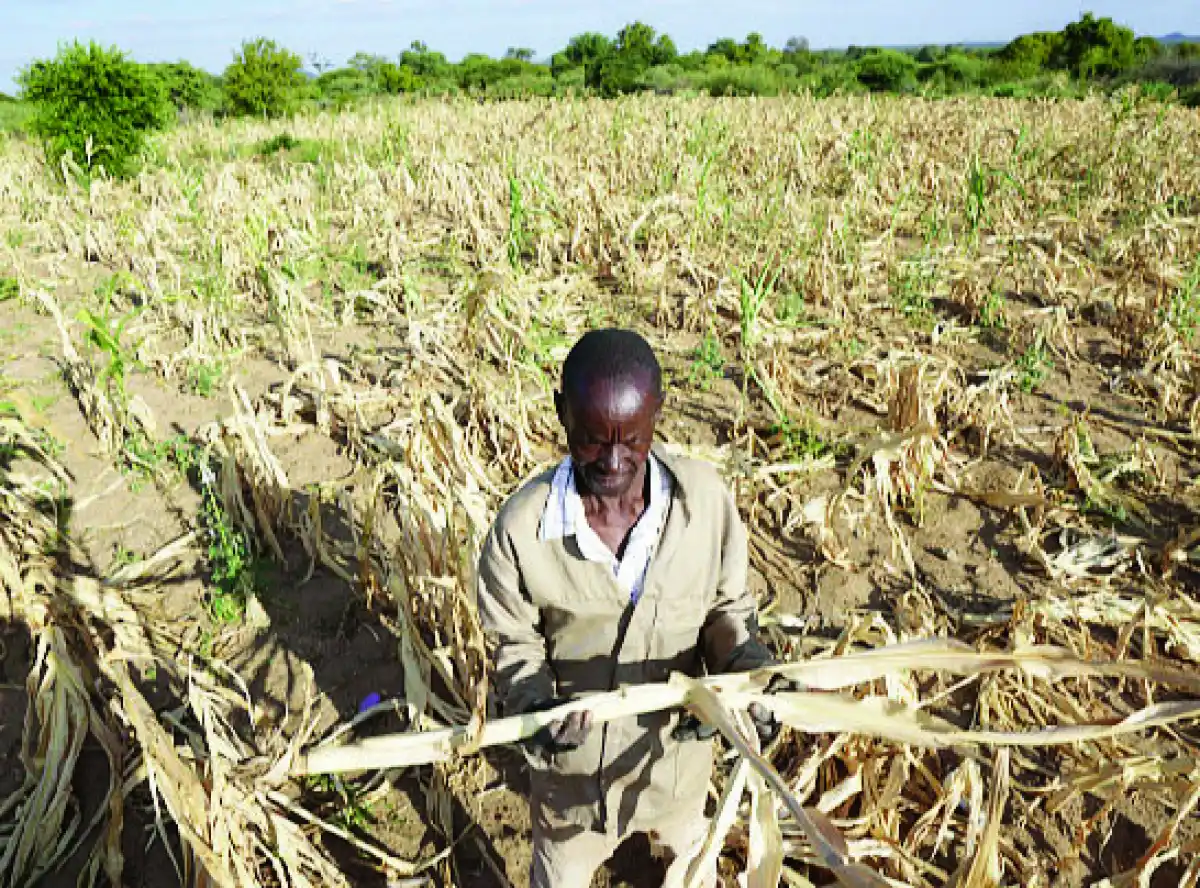
Malawi lost an estimated total of $341 million (about K600 billion) in crop and livestock, representing a 2.4 percent loss on the country’s GDP due to the El Niño weather that hit the country early this year.
This has been revealed in the latest Socio-Economic Effects of El Niño in Malawi and Implications for Recovery and Long- Term Resilience Building Report by the United Nations (UN). “A more detailed analysis of the damages and losses incurred in the agriculture sector resulting from the El Niño has revealed that the loss incurred on crops stands at $310 million, representing 12 per cent of the total crop value of $2.9 billion.
“While for livestock, the total loss is estimated at $31 million, representing 1.4 per cent of the total value ($2.24 billion) for all the livestock,” the UN report says.
It says across all the economic sectors, the agriculture sector was most impacted.
According to the report, the agriculture sector was directly impacted by soil moisture deficits, which impacted crop production, reduced pastures for livestock husbandry, and overall productivity of the ecological system (ecological infrastructure).
It notes that the overall reduction in agriculture output also impacted the industrial sector, particularly food processing industries such as cooking oil and maize flour.
“For instance, in April 2024, the Government of Malawi announced a restriction on the export of soya ostensibly to support local industries and investors in the soya value chain to access the soya beans following an assessed 20 per cent decline in production.
“In addition, the tourism and recreation sectors were mainly impacted by flash flooding, leading to reduced occupancy, with the extent yet to be fully captured,” the report says.
It adds that rural and urban water supply systems and hydroelectric energy generation were not significantly impacted, as the country received significant rains, albeit late and erratic, mainly affecting agriculture.
“Fortunately, tobacco, Malawi’s leading foreign exchange earner, was not impacted. The country recorded a harvest of 129 million kilograms of tobacco, a seven per cent increase from the 2023 tobacco production of 120 million kilograms,” the report says.

On March 23 this year, President Lazarus Chakwera declared a State of Disaster in 23 out of Malawi’s 28 districts affected by El Nino conditions.
The declaration applies to Nsanje, Chikwawa, Blantyre, Thyolo, Mulanje, Phalombe, Chiradzulu, Zomba, Machinga, Mangochi, Balaka, Mwanza, Neno, Lilongwe, Mchinji, Ntcheu, Salima, Dowa, Dedza, Ntchisi, Kasungu, Nkhotakota, and Karonga.
According to Chakwera, apart from the late and erratic onset of rains, the districts experienced inadequate rains, floods, and prolonged dry spells, which severely damaged crops and the prospects of food production.
According to the UN report, climate change is expected to significantly affect Malawi’s economy, mainly because of its dependence on climate-sensitive economic sectors and its low capacity to take adaptation measures due to preexisting macroeconomic vulnerabilities.
It says different climate change scenarios suggest that impacts of climate-related shocks and other disasters could result in substantial annual GDP losses, as high as 20 percent under business as usual (BAU) by 2040.
The UN says Malawi’s updated Nationally Determined Contribution (NDC) estimates a direct overall cost due to climate change equivalent to losing at least 5 percent of the country’s GDP yearly (Government of Malawi, 2021).
“Further, climate change will likely exacerbate existing social and economic inequalities, particularly for the vulnerable. The main impact channels are likely to be agriculture and infrastructure facilities and services that are instrumental to efficient production, transport, and trade.
“In agriculture, the increased uncertainty around future precipitation levels in Malawi will likely result in higher variability in crop yields,” it says.
Department of Climate Change and Metrological Services Director Lucy Mtilatila recently told reporters in Lilongwe that Malawi expects La Nina conditions this year.








0 Comments